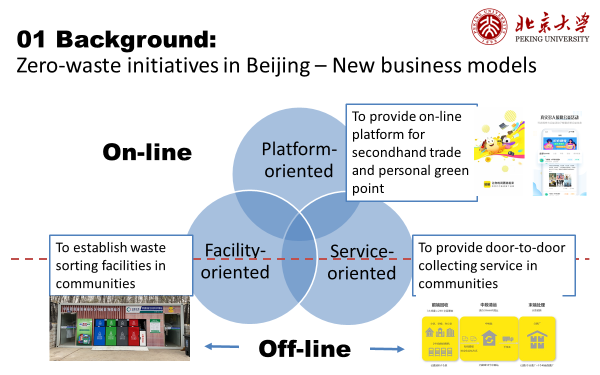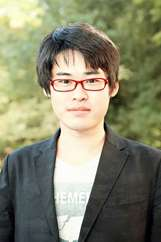The special session Towards Inclusive Circular Economy
On 28th June 2021, the on-line session on “Towards Inclusive Circular Economy: Transnational Network for Wise-waste Cities” was held on the 16th International Conference on Waste Management and Technology in Beijing, which was jointly organized by The Basel Convention Regional Centre for Asia and the Pacific and Tsinghua University.
China will keep promoting zero-waste city in 14th FYP and combines "carbon neutrality" strategy. How to build an inclusive, safe, resilient and sustainable zero-waste city is a major challenge. Relying on the joint project of the NSFC of China and NWO, The Netherlands, "Towards Inclusive Circular Economy: Transnational Network for Wise-waste Cities (IWWCs)", this session aims to build an international cooperation platform. We will share state of the art international experiences, from the perspectives as: novel sustainability analytical tools; inclusive city and urban governance; deep decarbonized and circular technology system integration and evaluation; as well as emerging smart infrastructure and data science applications.
Professor Dongliang Chairs the meeting.

Tong Xin introduced the community-based recycling program carried out Yanyuan, Beijing, summarizing three types of new business models of waste classification based on the standard four streams classification: platform oriented, facility oriented and service oriented. The conclusion proposed that the city should build the inclusive infrastructure to support the innovation.

Prof. Martin de Jong reported the review on the development of city label in pursuing sustainable urban development, and identifying the relations between circularity and inclusiveness in city as well as their role for other sustainable development goals.

Dr. Filippos K. Zisopoulos introduces the development of urban waste recycling in the European Union from the perspective of urban ecology. Using ecological concepts, he evaluates the efficiency and resilience of urban energy systems and circular economy in EU.

Prof. Dominika A. Teigiserova of Delft University of Technology introduced the experience of food waste disposal for sustainable circular economy in the European Union, and proposed an integrated food waste management strategy for the food industry chain with reduction as the priority


Dr. Dou Yi from Tokyo University introduced the sustainable stock management in Japan, focusing on the spatial adjustment in the shrinking cities, as well as recycling for new energy vehicle battery materials and photovoltaic building materials.


Professor Minoru FUJII from the National Institute of The Environment, Japan, presented the latest progress in waste plastics management in Japan, and proposed the goal of moving towards a "carbon neutral" plastic circular economy, focusing on comprehensive solutions for plastics production, consumption and waste recycling.


Dr.Luo Xiao from Tongji University, predicted the population dynamics and the spatial distribution of solid waste generation in the Yangtze River Delta based on the analysis of mobile phone signaling data, and proposed to optimize the spatial layout of recycling facilities according to the characteristics of personnel flows.


Dr. Dong Liang from Hong Kong City University introduced the use of GIS technology to explore the urban mining information in Hong Kong, proposing the use of location-based urban material metabolism analysis and agent-based modeling techniques to study the factors that impact the people’s recycling behavior; thus, providing information to optimize the urban circular economy infrastructure with inclusiveness.





